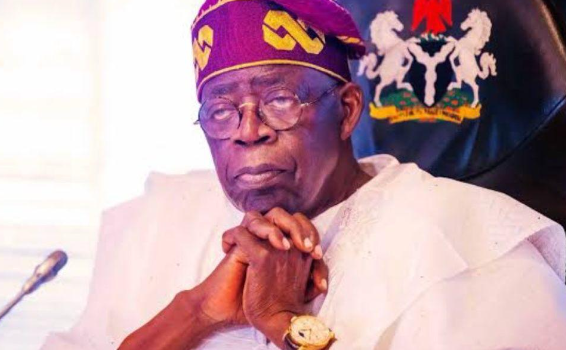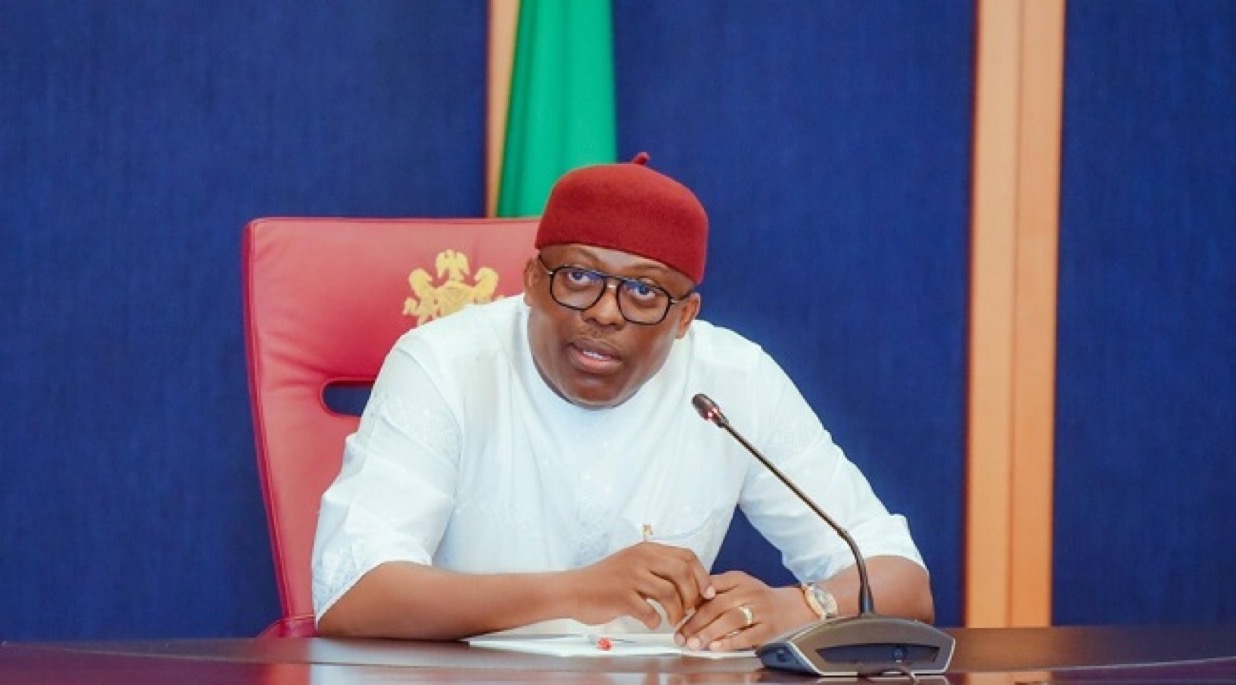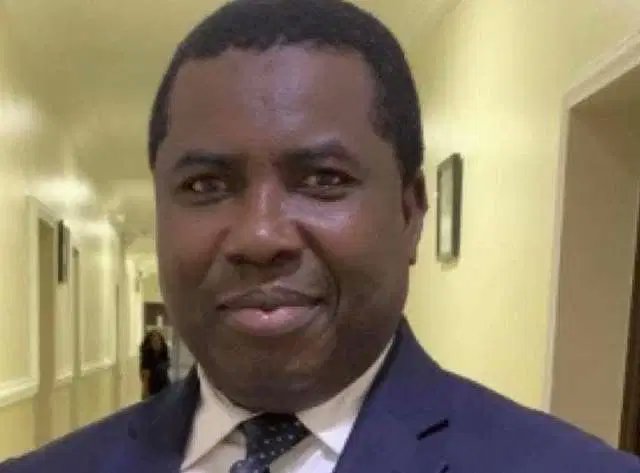
“Be Patient With Me”: Tinubu Pleads With Nigerians as Economic Hopes Flicker on the Horizon

In a solemn but determined tone, President Bola Ahmed Tinubu on Saturday urged Nigerians to hold fast and remain hopeful as his administration pushes forward with sweeping reforms and ambitious infrastructure projects meant to turn around the nation’s fortunes. Speaking at the inauguration of Phase 1, Section 1 of the Lagos-Calabar Coastal Highway — a landmark 30-kilometre segment of the proposed 750-kilometre mega project — Tinubu struck a chord of reassurance, optimism, and defiance in the face of mounting economic pressures felt by millions across the country.
Acknowledging the struggles that have gripped the daily lives of Nigerians, the President said, “I know at this stage, your expectation is still very high and our people are still experiencing hardship. I take this opportunity to appeal to all Nigerians that the hope is here and it is realisable.” His words, aimed at calming growing discontent and reigniting national confidence, came amid rising costs of living, job uncertainty, and lingering skepticism over the administration's economic policies.
Yet despite the challenges, Tinubu pointed to what he described as measurable progress. He cited a decline in inflation rates, ongoing reforms in the foreign exchange system, and a decisive clampdown on the corruption that once marred the subsidy regime. “You would be proud of the benefits,” he assured. “There is light at the end of the tunnel. Inflation is coming down, the corruption in the exchange rate is eliminated, the corruption in fuel subsidy is limited to the barest minimum.”
While critics argue that the tangible benefits of these reforms are yet to be felt by the average Nigerian, the President insisted that the pain of the present is the price of a more stable and prosperous future. “It is all for you, the people,” he said. “We are reducing the cost of manufacturing and encouraging local production. We give all incentives for everyone to abide by the principle. May God bless our country; may God bless Lagos State and keep our fighting soldiers safe.”
The event was not without stern warnings either. Tinubu delivered a clear message to developers working along federal routes: no structure built without due process and government approval would be compensated. “Let me at this stage warn all developers: the Federal Government reinforced the setbacks for the interest of our nation. Development without approval will not be compensated,” he declared, underscoring his administration’s commitment to upholding regulatory standards. “We have gazetted and published the setbacks; we are going to enforce it rigidly in every way possible.”
His statements come amid a flurry of legal and public debates surrounding land rights, especially in Lagos, where the Coastal Highway has sparked tensions over displacements and demolition notices. One of the most high-profile cases involves the Landmark Group, whose beachfront development was partially affected by the project. Minister of Works David Umahi, also present at the event, clarified the situation, stating, “We did no harm to the Landmark property. It is by your order that we should save as much infrastructure as possible even though they violated the gazetted route.”
Umahi added that only the shoreline encroachments had been impacted, citing a Supreme Court ruling that places 250 metres of land from the coastline under federal jurisdiction. “The Landmark infrastructure is intact. What went off was their encroachment on our front shoreline,” he affirmed.
The coastal highway project, one of Tinubu’s flagship infrastructure undertakings, is envisioned as a six-lane carriageway with a corridor width of 60 meters. Once completed, it will span from Lagos to Calabar, opening up massive economic and tourism potentials for the entire southern corridor of Nigeria. Its construction, however, has not come without controversy and cost — both financial and human.
Despite legal allowances to the contrary, the President made a rare humanitarian gesture by ordering that compensation be paid to owners of even illegal structures along the route — a move that could set a precedent in federal project management. According to Umahi, the government has already disbursed N18 billion in compensation payments for properties affected by the first phase of the construction.
In another strategic move that may shape the future of road infrastructure in Nigeria, Tinubu directed governors overseeing states with significant federal road projects to reserve a minimum of 500 meters from the edge of the carriageway. This, Umahi explained, would facilitate the implementation of tolling systems once the roads are operational, ensuring maintenance and sustainability without burdening federal coffers indefinitely.
Tinubu’s appearance at the project site — flanked by federal ministers, state dignitaries, and party loyalists — marked more than just a ribbon-cutting ceremony. It was a declaration of intent. It was a leader trying to reassure a nation burdened with inflation, energy insecurity, and a depreciating naira that the journey toward recovery, though slow, is on course. It was a plea, not just for patience, but for faith.
Still, the Nigerian public remains cautiously optimistic. Many acknowledge the significance of large-scale projects like the Coastal Highway, but continue to struggle with basic necessities — electricity, food, transport — and are eager for these promises to translate into daily relief. In the bustling markets of Lagos and Port Harcourt, in the farmlands of Benue, and on the busy motor parks in Kaduna, the refrain is the same: When will the “better days ahead” arrive?
As the President wrapped up his remarks, he invoked divine protection and national unity, offering prayers for the safety of the nation’s armed forces and the peace of Lagos State. But in a country where political promises have often withered in the dry heat of reality, only time will tell whether Tinubu’s call for patience will be repaid with prosperity — or met with protest.
For now, Nigerians watch and wait, holding onto hope, however faint, that this time, their sacrifice might finally yield the Nigeria they were promised.


